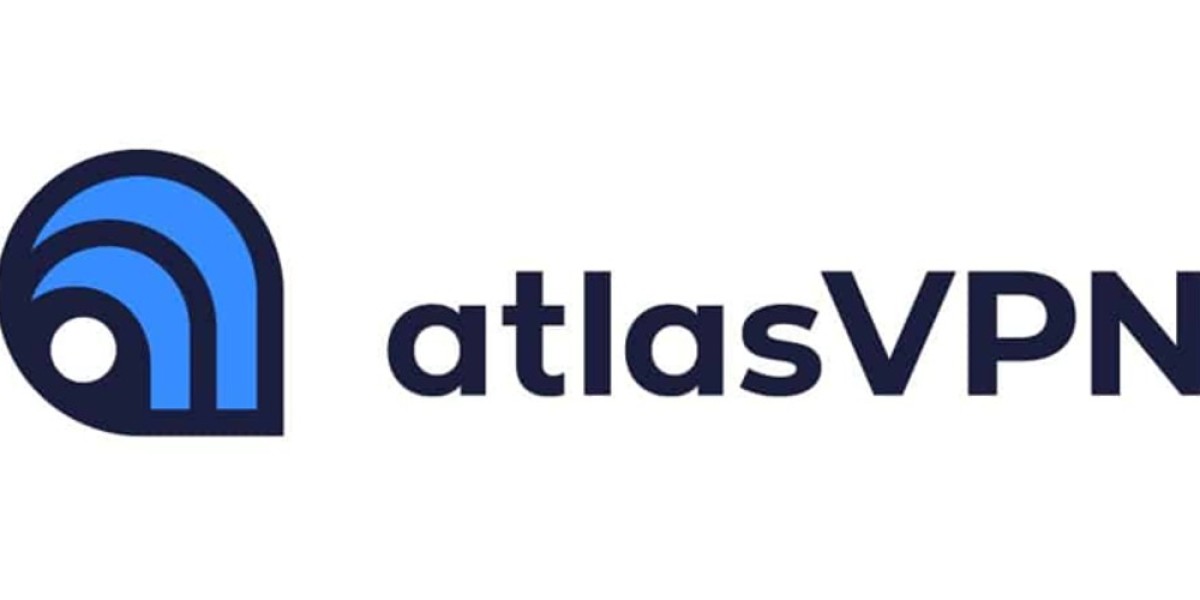Atlas VPN and NordVPN Merger
On April 24, 2024, a significant change occurred in the VPN landscape: Atlas VPN announced its merger with NordVPN.
This transition means that Atlas VPN will cease operations on that date, and current users will be transferred to NordVPN, which is owned by the same parent organization.
For further details regarding the shutdown of Atlas VPN, you can visit their official announcement page:
https://atlasvpn.com/blog/announcement
Additionally, you might find our review of NordVPN insightful.
If you're considering other VPN options, we have curated articles highlighting various recommended services in the market.
With numerous VPN brands available, navigating through them can be overwhelming.
However, two VPNs that consistently receive high praise are Hotspot Shield and Atlas VPN.
To facilitate your decision-making process, we will present a comprehensive comparison using lists, charts, and tables showcasing the features of these two VPNs side by side.
After reviewing the comparison, you can check our final verdict to see which service comes out on top, if you wish to skip ahead.
Here are some standout features of Hotspot Shield:
- Unwavering reliability in connections
- Robust security measures
- Excellent performance with major streaming platforms
- 24/7 live chat support available
- Unrestricted speeds, ideal for streaming
- Allows unlimited simultaneous connections
- Competitively priced
- Strong emphasis on security
When comparing VPN services, pricing is a crucial element to consider.
Hotspot Shield is generally more expensive than Atlas VPN, but it does provide a basic free tier. In contrast, Atlas VPN doesn’t have any free version available.
Hotspot Shield offers multiple subscription options: a basic tier, a premium tier, and a premium family tier. On the other hand, Atlas VPN provides only a single pricing option.
In terms of satisfaction guarantees, Hotspot Shield has a 45-day money-back policy, while Atlas VPN has a 30-day return policy.
Both services allow monthly payments; however, opting for this can lead to higher overall costs compared to paying for an entire year upfront. For those hesitant about a long-term commitment, starting with a monthly plan is a viable option before transitioning to an annual subscription.
Looking at monthly rates, Atlas VPN’s plan is more affordable at $10.99 per month, compared to Hotspot Shield’s premium at $12.99 per month and premium family at $19.99 per month.
For annual subscriptions, Atlas VPN continues to be the cheaper choice at $49.01 per year (approximately $4.08 monthly). Hotspot Shield charges $95.88 annually for its premium plan (around $7.99 monthly) and $143.88 for the premium family plan (about $11.99 monthly).
Both providers also offer a three-year plan that can be paid in advance. Atlas VPN’s three-year option is priced at $71.49 total (around $1.83 per month) and includes an additional three months free.
Finding Hotspot Shield’s three-year plan can be challenging, as it’s not prominently displayed on their main pricing page, though a coupon code is available for use. This plan costs $107.64 for the three years (approximately $2.99 monthly).If you are leaning towards Atlas VPN, you'll find that their annual and three-year subscription options provide substantial savings compared to their monthly plan. It’s advisable to select one of these longer-term plans for better value.
On the other hand, for Hotspot Shield, opting for the three-year subscription stands out as the most economical choice. If you intend to go for Hotspot Shield, be sure to look for any special coupon offers available.
For Hotspot Shield, you can enjoy a remarkable 77% discount off the standard price with the three-year plan, priced at just $2.99 per month.
Conversely, Atlas VPN delivers an impressive 83% savings with their three-year plan, available at only $1.83 per month.
Both Hotspot Shield and Atlas VPN are compatible with a wide array of operating systems including Windows, Mac, Android, iOS, Linux, and smart TVs like Amazon Fire TV and Android TV.
A notable benefit of Atlas VPN is its allowance for an unlimited number of simultaneous device connections, enabling users to protect all their devices at once.
In contrast, Hotspot Shield's premium plan permits connections for up to 10 devices simultaneously. For those opting for the premium family plan, there is support for up to 25 devices, but restrictions apply, limiting each of the five family members to a maximum of five devices.
Additionally, Hotspot Shield features a Smart VPN option that facilitates split tunneling, giving users the flexibility to choose which applications will utilize the VPN. On the other hand, Atlas VPN offers a more restricted split tunneling feature, as it is only available on Android devices. This functionality allows users to decide if specific apps should connect through the VPN or bypass it.
When traveling abroad, accessing your favorite streaming services as if you were at home can be a challenge, but a reliable VPN can simplify this task. This process of accessing streaming services while in another country is referred to as unblocking.
In terms of unblocking capabilities, Atlas VPN has a slight edge over Hotspot Shield; however, both services are compatible with most major streaming platforms. Notably, Hotspot Shield is unable to bypass Sky Go, whereas Atlas VPN can.
Both services successfully provide access to popular platforms such as Netflix, Amazon Prime Video, Disney+, YouTube TV, and HBO Max.
Traveling to China presents unique challenges due to the stringent "Great Firewall," which employs rigorous web filtering techniques.
Hotspot Shield is operational within China, maintaining impressive streaming speeds. However, it’s crucial to download, install, and subscribe to Hotspot Shield before entering the country, as the website will be inaccessible once you are there.
On the other hand, Atlas VPN is ineffective in China, even if you have subscribed prior to your trip.
User-Friendly VPN Comparison
Both Hotspot Shield and Atlas VPN stand out for their user-friendly installation and operation.
Even if you're new to VPNs, you shouldn't encounter any difficulties navigating either of these options.
Both services feature clean and straightforward interfaces in their desktop and mobile applications, allowing users to quickly access necessary information.
They are compatible with all major operating systems for both computers and mobile devices.
Switching the VPN on and off is a breeze with either service.
Additionally, both options offer a kill switch feature that halts all internet traffic in the event of an unexpected VPN disconnection.
When comparing Hotspot Shield and Atlas VPN, one notable distinction is the number of server locations. Hotspot Shield boasts over double the countries and total servers compared to Atlas VPN.
That said, Atlas VPN strategically targets major regions, excluding China and South Africa, which could result in the advantages of Hotspot Shield being less significant for some users.
In regions like China, Russia, and Egypt, Hotspot Shield employs virtual servers with DNS routing. This means users get a local IP address, but the actual servers are situated elsewhere, potentially leading to privacy issues or latency problems.
Despite Hotspot Shield's broader server network, both providers generally satisfy user needs. If Atlas VPN covers your frequently visited areas, it can still function effectively for you.
Focusing on the United States, Hotspot Shield has servers in over 24 cities, while Atlas VPN covers less than 10. This difference can provide Hotspot Shield with an edge for streaming local sporting events or accessing online casinos, although this may not be crucial for everyone.
Atlas VPN has a slight edge in speed, as both services deliver sufficient performance for HD and 4K streaming. Tests revealed Atlas VPN averages 247 Mbps, making it one of the fastest options available, while Hotspot Shield averaged 197 Mbps.
In North America, Atlas VPN recorded an impressive average speed of 349 Mbps compared to Hotspot Shield's 207 Mbps. However, in European tests, Hotspot Shield slightly outperformed Atlas VPN with speeds of 195 Mbps against 180 Mbps.
Hotspot Shield and Atlas VPN both prioritize user security and privacy.
They utilize the WireGuard protocol, known for its efficiency and minimal impact on performance.
Additionally, both services support IKEv2, which is particularly effective on mobile networks, allowing for quick reconnections during dropped connections.
Hotspot Shield has developed its own proprietary protocol, Catapult Hydra. While not open-source, it has undergone assessment by independent security professionals.
Both VPNs employ a robust 256-bit AES encryption tunnel to safeguard your internet traffic, effectively shielding it from ISPs and potential hackers.
In terms of encryption strength, Atlas VPN utilizes a longer 4096-bit key compared to Hotspot Shield's 2048-bit key.
Moreover, both services come equipped with a kill switch feature to enhance user security further.
When comparing Atlas VPN and Hotspot Shield, both services prioritize user privacy quite similarly.
Firstly, neither provider keeps logs of user activity, an essential feature for those seeking anonymity while browsing online.
However, both companies are based in the United States, which raises some concerns for privacy advocates. In the rare event that law enforcement suspects serious criminal activity, they could potentially compel these VPNs to start logging user activities, although such situations are uncommon.
Hotspot Shield was acquired by Aura, a cybersecurity firm, a few years back. This acquisition led to enhancements in Hotspot Shield’s privacy policy, ensuring that it does not retain connection logs linked to user IP addresses. Nevertheless, Aura does reserve the right to gather certain device identifiers from users of Hotspot Shield.
Similarly, Atlas VPN also collects some device-level identifiers. This data helps them analyze user interaction with their service but does not allow them to monitor individual online activities.
For the average user, the collection of device-level information might not be a significant issue. However, many would prefer if these services refrained from tracking any such data altogether.
If you opt for the free version of Hotspot Shield, expect to encounter advertising within the app, although these ads are not tailored to your specific interests.
In terms of payment options, Atlas VPN offers a wider variety, including some cryptocurrencies, while Hotspot Shield limits its payment methods to credit cards only.
VPN Comparison: Atlas vs Hotspot
Hotspot Shield and Atlas VPN both operate under a shared IP configuration model.
This approach ensures that the IP traffic of all users on the same server is combined, making it extremely difficult to trace the activity of any individual user.
However, it is important to note that neither service offers the option for dedicated or static IP addresses.
As a result, this limitation might hinder your ability to access specific services that employ IP address filtering when using these VPNs.
When comparing customer support for Hotspot Shield and Atlas VPN, both services excel in providing quality assistance, although Atlas VPN takes a slight edge.
It's worth noting that neither of these VPN providers includes telephone support, a common practice in the industry.
Both platforms offer access to customer service through 24/7 live chat, email, and ticket submissions. Our assessments confirmed that both services provided accurate responses to inquiries.
In our email support tests, Atlas VPN stood out with an impressive average response time of around 45 minutes, while Hotspot Shield responded within a range of 3-4 hours, which is still commendable.
For those who prefer to troubleshoot independently, each service has a searchable knowledge base. However, only Atlas VPN offers video tutorials to assist users with guidance and self-help tips. It's important to note that these video resources have not been updated in over two years, indicating a lack of regular activity in this area.
In the comparison of Atlas VPN and Hotspot Shield, Atlas VPN edged out slightly, although the choice was challenging.
Both VPNs offer robust features at competitive rates and are user-friendly.
A significant differentiator was pricing, where Atlas VPN clearly stands out.
Whether you opt for a monthly, yearly, or three-year plan, Atlas VPN remains more affordable than Hotspot Shield.
Moreover, Atlas VPN allows unlimited simultaneous connections across devices, even with its lower pricing.
On the other hand, Hotspot Shield provides a more extended money-back guarantee of 45 days compared to Atlas VPN's 30 days, giving users more time to evaluate its services.
Additionally, Hotspot Shield has a limited free version, whereas Atlas VPN does not offer one.
However, the cost advantage of Atlas VPN compensates for these benefits of Hotspot Shield.
For users in countries like China or South Africa, Hotspot Shield takes the lead as it is accessible in over twice the number of countries as Atlas VPN.
Both VPNs demonstrate comparable customer support, privacy features, and security measures.
Crucially, they both facilitate fast streaming on most popular platforms.
Both Atlas VPN and Hotspot Shield are recognized among the best VPN services available.
Atlas VPN is favored slightly due to its superior pricing and speed, but Hotspot Shield remains an excellent option if its features align better with your requirements.
Both services support torrenting and include essential features for it.
Users can confidently choose either, as both incorporate a kill switch, refrain from logging user activity, and protect your real IP address during unexpected disconnections.Both Hotspot Shield and Atlas VPN prioritize user privacy by not tracking how individuals utilize the internet while connected to their services. They maintain a high standard of confidentiality by refraining from keeping activity logs. However, both providers do gather limited device-specific information to analyze user engagement with their platforms.
When it comes to gaming, Atlas VPN stands out as one of the top choices, while Hotspot Shield is not part of that elite group. Nonetheless, both VPNs are equipped to handle online gaming effectively. They both utilize the WireGuard protocol, which offers excellent speed for gamers. Atlas VPN has a slight edge in speed performance, but if you're in a location without an Atlas VPN server, Hotspot Shield could be the better option since it has a presence in nearly twice as many countries.
Additional comparisons worth exploring include:
-
NordVPN vs Hotspot Shield
-
Surfshark vs Hotspot Shield
-
PrivateVPN vs Atlas VPN
-
OVPN vs Atlas VPN
What is a Netflix VPN and How to Get One
A Netflix VPN is a virtual private network designed to help users access region-restricted content on Netflix by connecting to servers across different countries. By choosing a reliable VPN provider that supports streaming, users can create an account, download and install the VPN application, and connect to a server in the desired region to unlock and enjoy Netflix's diverse content library.
Why Choose SafeShell as Your Netflix VPN?
If you want to access region-restricted content by using a Netflix VPN, you may want to consider the SafeShell VPN . SafeShell VPN is a powerful tool that offers several benefits to enhance your streaming experience. With high-speed servers specifically optimized for Netflix, it ensures seamless streaming without interruptions, providing buffer-free playback and high-definition quality. Additionally, SafeShell VPN allows you to connect up to five devices simultaneously, supporting a wide range of operating systems like Windows, macOS, iOS, Android, Apple TV, Android TV, and Apple Vision Pro, so you can enjoy netflix unblocked on any device of your choice.
Moreover, SafeShell VPN's exclusive App Mode feature enables you to unlock content from multiple regions at the same time, expanding your access to a diverse array of streaming services. With lightning-fast speeds and no bandwidth limitations, you can say goodbye to buffering and throttling, enjoying unprecedented internet performance. Furthermore, SafeShell VPN prioritizes your online privacy with its advanced "ShellGuard" VPN protocol, offering top-level security with strong encryption and robust features to keep your data protected. These advantages make SafeShell VPN an excellent choice for unblocking Netflix and other region-restricted content.
A Step-by-Step Guide to Watch Netflix with SafeShell VPN
To start using SafeShell Netflix VPN for accessing Netflix content from different regions, first, subscribe to SafeShell VPN by visiting their official website at https://www.safeshellvpn.com /. Choose a subscription plan that suits your needs and budget, then click the "Subscribe Now" button to proceed. Once subscribed, download and install the SafeShell VPN app on your desired device, be it Windows, macOS, iOS, or Android. Ensure you select the correct version for your operating system to avoid compatibility issues.
After installation, launch the SafeShell VPN app and log in to your account. The app offers two modes, but for an optimal Netflix experience, it's advisable to select the APP mode. Then, you need to choose a VPN server from the available list. Pick a server located in the region whose Netflix library you want to explore, such as the US, UK, or Canada, and click "Connect" to establish a secure connection. Finally, open the Netflix app or website and log in with your Netflix account to enjoy region-specific content streaming.







